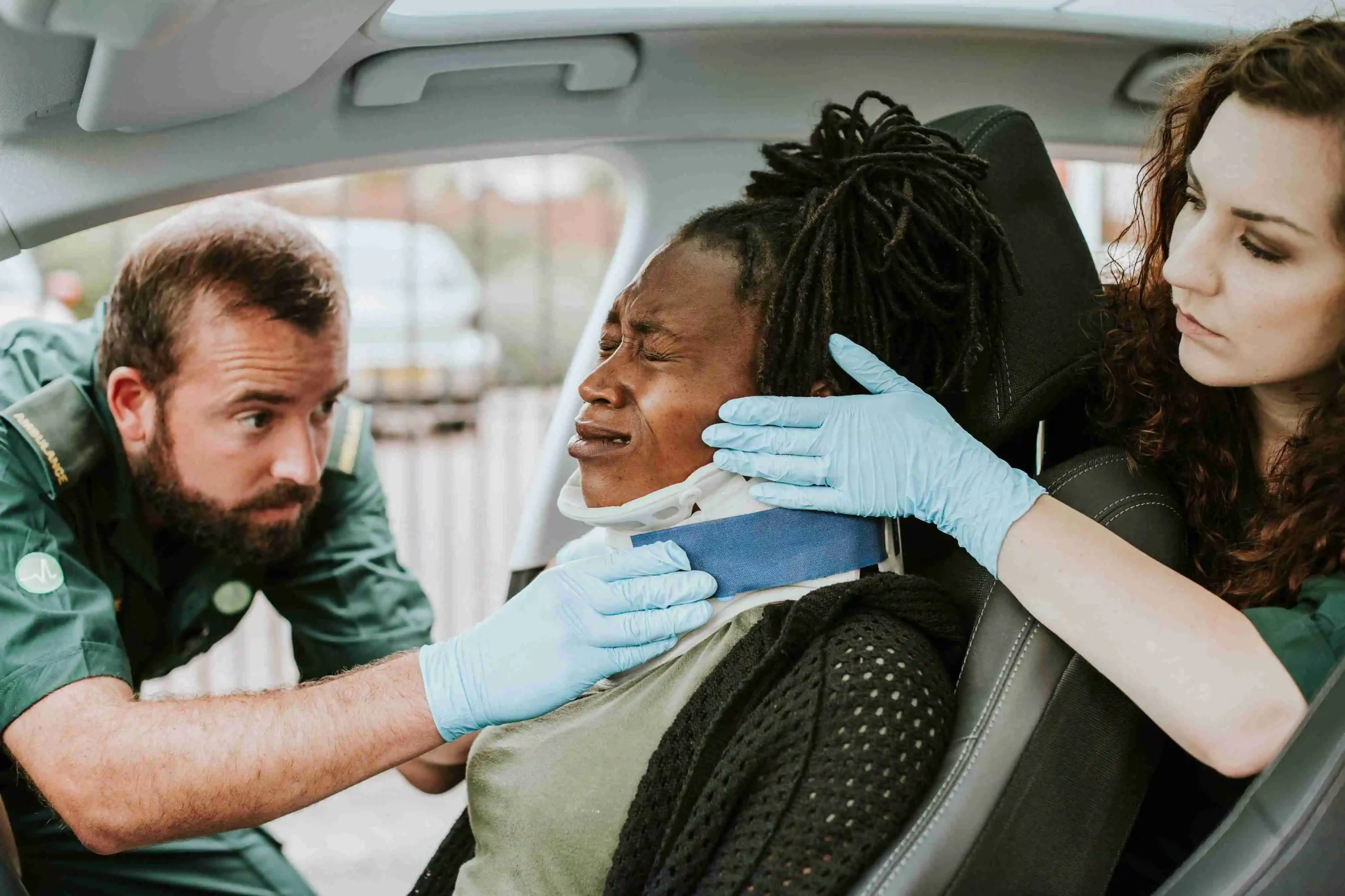
Pain After a Car Accident: When to Seek Legal and Medical Help
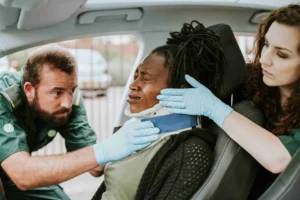
Pain after a car accident doesn’t just disappear overnight. A stiff neck that seemed minor at first, a sharp jolt every time you move the wrong way, or an ache that won’t let up—it all starts to add up. Simple things like turning your head while driving or reaching for a cup of coffee become reminders that something isn’t right.
Waiting it out might seem like the easiest option, but pain that won’t disappear isn’t an issue to brush off. Knowing when to see a doctor, what medical care can help, and when legal action might be necessary can keep you from getting stuck with an injury—and the bills that come with it.
How Long Should You Expect to Be in Pain After a Car Accident?
Certain injuries heal within days. Others don’t. Muscle strains, nerve damage, and joint injuries don’t always show up right away. A stiff neck or sore back might initially seem minor, only to flare up days or weeks later. Whiplash, herniated discs, and soft tissue injuries often take longer to heal, affecting movement and making simple tasks more difficult than they should be.
Pain after a car accident doesn’t follow a schedule. Some people recover in a week, while others deal with discomfort for months. If pain isn’t improving or new symptoms develop, your body may be telling you that the injury isn’t healing the way it should.
When to See a Doctor for Car Accident Injuries
A lot of people put off going to the doctor after a crash. Some don’t want the hassle, others assume the pain will go away, and many worry about the cost of medical treatment. But that stiff neck that started as mild soreness could be a sign of whiplash. A sharp pain in your back might mean a herniated disc pressing on a nerve. A dull ache in your shoulder could be a torn ligament.
Treatment for car accident injuries depends on the type of injury and how long symptoms have been present. Standard medical treatments are:
- Physical therapy to improve mobility, rebuild strength, and prevent stiffness,
- Chiropractic care to relieve tension and restore proper spinal alignment,
- Pain medication for short-term relief of swelling and discomfort,
- Cortisone injections to reduce inflammation and provide longer-lasting pain relief, and
- Surgery for severe cases involving fractures, torn ligaments, or spinal damage.
An early diagnosis of an injury improves your chances of recovery. Medical records also play a role in legal claims—insurance companies look for gaps in treatment to downplay injuries.
What If You Haven’t Seen a Doctor for Your Injuries?
Waiting too long to seek medical care can create complications—not just for your health but for pursuing a legal claim. Treatment after a car accident, regardless of the delay, can prevent an injury from worsening, but the longer you wait, the more challenging it becomes to prove that the accident caused the injury, especially if you need to file a lawsuit.
Mississippi law limits the window you have to take legal action. The statute of limitations for personal injury claims is generally three years from the date of the accident. Even within that timeline, if medical records don’t document the injury in a timely manner, insurance companies may try to argue that another factor caused it.
Seeking treatment does more than protect your legal rights—it helps prevent minor injuries from becoming long-term issues.
Managing Pain After a Car Accident
Sore muscles, nerve pain, and stiff joints can make even simple movements feel like a struggle. Proper pain management after a car accident can reduce discomfort, speed up healing, and keep minor injuries from becoming bigger problems.
Some common treatments include:
- Massage therapy to loosen tight muscles and improve circulation,
- Acupuncture to target nerve pain and reduce inflammation,
- Nerve blocks to numb irritated nerves and provide lasting relief,
- Medication to ease swelling and short-term pain, or
- Rehabilitation exercises to rebuild strength and improve mobility.
Pain shouldn’t dictate what you can and can’t do. The right car accident pain management treatment plan can get you back to moving freely—without wincing every time you take a step.
Getting Compensation for Car Accident Injuries
Pain after a car accident isn’t just physical—it can take a toll on your finances and day-to-day life. Doctor visits, therapy, and medication add up fast, and missing work can leave you struggling to keep up with expenses. When insurance companies try to minimize injuries or rush low settlement offers, things only become more stressful.
Mississippi law follows a pure comparative negligence system, meaning you may still qualify for compensation even if you were partially at fault for the crash. A personal injury claim may cover the following:
- Medical expenses for doctor visits, therapy, medication, and ongoing treatment;
- Lost income if the injury keeps you from working or lowers your earning potential; and
- Pain and suffering for the physical and emotional toll the injury has caused.
Insurance companies don’t look out for your best interests. They look for ways to pay less. Legal representation can push back against unfair tactics and ensure you’re not left covering expenses that shouldn’t be your responsibility.
When to Talk to a Lawyer After a Car Accident
Lingering pain, growing medical expenses, and lost wages don’t just resolve themselves. The longer an injury affects your daily life, the harder it becomes to ignore the financial strain it brings. Insurance companies know this and count on people accepting low offers to make ends meet.
Smith & Holder, PLLC fights for people who are dealing with the physical and financial toll of a car accident. You shouldn’t have to cover medical expenses out of pocket or accept a settlement that won’t pay for long-term treatment. Our firm pushes back against insurance tactics to get the compensation you need for medical care, lost wages, and everything this injury has taken from you.
Waiting makes it easier for the insurance company to question your claim. Call today for a free consultation, and let’s discuss how we can help you.
Read More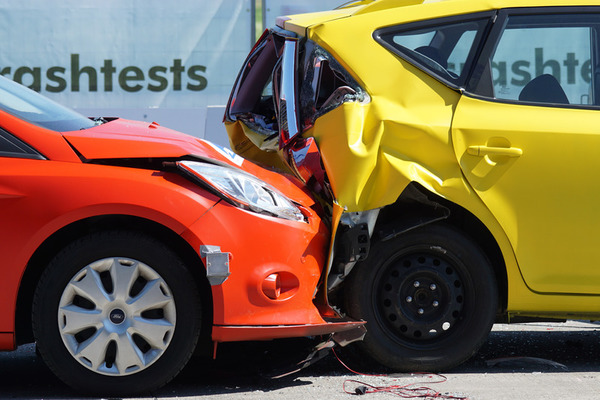
What to Expect During Your Initial Car Accident Consultation
If you suffered injuries and other losses in a car accident, it’s essential to find the right lawyer to help you recover the compensation you deserve. However, hiring a car accident lawyer for the first time can be overwhelming. As you prepare your list of potential car accident attorneys to meet with, you may wonder what to expect during your initial car accident consultation. Read on to learn more about what happens during this initial car accident consultation and how to determine whether a lawyer is right for you.
Key Points
- Your first consultation sets the tone: this meeting helps your attorney understand your case and guide you through next steps.
- Bring important documents: accident reports, insurance details, photos, and medical records help your lawyer assess your claim.
- Expect detailed questions: your lawyer will ask about how the crash occurred, your injuries, and how they’ve affected your life.
- Get clarity on the legal process: you’ll discuss timelines, possible outcomes, and how fees or contingency agreements work.
- Honesty is key: being transparent ensures your attorney can give the best advice and representation.
During your initial car accident consultation in Mississippi, your attorney will review the crash details, your injuries, and key documents like police and medical reports. They’ll explain your legal options, assess who’s at fault, and outline your next steps for pursuing compensation.
What Happens During a Car Accident Consultation
Deciding to hire a lawyer for the first time is daunting, and you may need help figuring out where to start. As you prepare to attend your initial car accident consultation, it’s essential to be organized and bring a list of questions to ask the attorney. Find how much time the attorney allotted for your meeting to ensure you get answers to all your questions. Generally, the following topics outlined below are covered in this first consultation.
Case Discussion
Knowing what your car accident attorney will ask you during your initial consultation is important. Most attorneys will want to learn more about the facts of your case, including details of the accident, the severity of your injuries, and how the accident has impacted your life. Details of the accident include how the crash occurred, the treatment of your injuries, the evidence gathered since the accident, and your prognosis for recovery. Bring photographs, medical records, police reports, and other documentation to the attorney.
Legal Advice
Upon initial review of the evidence, the attorney may provide you with legal advice and options for pursuing compensation against the liable driver. Additionally, they may offer tips in dealing with insurance companies, avoiding mistakes and other errors that could hurt your claim to remember as you move through the legal process.
Legal Process
In this state of the consultation, the attorney explains the process of personal injury lawsuits. They may explain the potential parties that may be liable for your accident. Most attorneys are hesitant to place a value on your case at this early stage. However, they will explain what damages are available in your case.
Experience
You may get an idea of an attorney’s experience in personal injury cases, mainly whether they have handled many car accident cases. Ask about their success in obtaining favorable judgments and settlements on behalf of their clients. You may also inquire about the attorney’s caseload and how much time they can devote to your matter.
Fees
Most personal injury cases operate on a contingency fee basis. A contingency fee means you pay nothing unless your attorney obtains a judgment or settlement on your behalf. The attorney receives an agreed-upon percentage of the total settlement or judgment at that time. It’s important to discuss with your attorney whether they require you to pay for any expenses, such as court filings, expert fees, and other similar costs outside of an attorney’s hourly rate, out of pocket, or whether these expenses are also included in the contingency fee agreement.
What Else Happens During a Car Accident Consultation?
While the primary focus of your initial consultation may be learning how an attorney can help you in your case, you also gain insight into the attorney and their personality. For example, you may find their behavior or communication style does not align with yours. They may be too aggressive or dismiss your concerns. It’s vital to feel heard during your case and find an attorney who focuses on your needs and builds a case based on your priorities.
You may also discover that an attorney needs more experience litigating a case at trial. Even though most personal injury cases settle, you may feel more comfortable retaining an attorney with trial experience. Take notes at each consultation so you can review the details of each attorney meeting to make it easier to decide.
Contact Us Today t0 Schedule Your Free Car Accident Consultation
Smith & Holder, PLLC, is a trial and appellate law firm recognized for taking on and winning cases. Our highly skilled attorney focuses on providing our clients excellent services while maintaining close communications and utilizing effective strategies. We understand the anger and helplessness you may feel after suffering injuries in an accident due to someone else’s negligence. We take a creative and strategic approach to secure maximum compensation for our clients when they need it most.
When you retain Smith & Holder, PLLC, you work closely with your attorney throughout your case. You can feel confident knowing we are doing everything possible to maximize your financial recovery. We assist our clients in every aspect of their case from start to finish. We know what it takes to win and work diligently to secure the best possible outcome in your case. Contact us today by phone or email to learn how Smith & Holder, PLLC can help you.
Read More

How to Get Over a Car Accident That Was Your Fault

Figuring out how to get over a car accident that was your fault isn’t about ignoring what happened—it’s about finding a way to move through it. You’re here because you’re looking for answers. No excuses or sugarcoating—just straightforward advice on what to do next. Let’s talk about what this looks like, from managing the emotions to the responsibilities that follow a car accident that was your fault.
It’s Not Just About the Damage
When people think about car accidents, they often picture the wreckage—dented metal, broken glass, and a long list of repair costs. But if you’ve been in one, you know it’s not just about what’s left on the road. The thoughts that follow can be just as overwhelming. Did I make the right decision? Could I have prevented this? What happens now?
It’s not just about the cars or the insurance claims; it’s about what the accident leaves behind emotionally. And when you’re at fault, those feelings tend to linger far longer than any physical damage.
Taking Responsibility After a Car Accident
The first step in moving past the accident is coming to terms with the fact that you made a mistake. You can’t undo it, but you can decide what happens next.
Owning it doesn’t mean labeling yourself as reckless or irresponsible. It means looking at the situation honestly—was it a distraction, a miscalculation, or just a rushed choice that didn’t go as planned? Figuring out what went wrong isn’t about punishing yourself. It’s about ensuring you react differently if you ever find yourself in a similar situation. Mistakes happen, but what you learn from them is what matters.
What Is the Emotional Toll of Causing an Accident?
Trauma after a car accident isn’t just something that happens to passengers or those with severe injuries. It can affect anyone— including the person at fault. Even if no one was seriously hurt, knowing your mistake led to a crash can stay with you in ways you didn’t expect.
You might tense up when passing the crash site. An unexpected stop could send a wave of panic through you. If the guilt, stress, or fear isn’t easing with time, emotional trauma after a car accident may be something you need to address. These feelings don’t always fade on their own, and working through them is just as important as handling the insurance and legal side.
Can You Get PTSD from a Car Accident?
Some people walk away from an accident thinking they can shake it off, only to find the memory creeping in when they least expect it. A sudden noise might make your heart race, or your grip could tighten on the wheel at a busy intersection. These reactions could be signs of something more—so, can you get PTSD from a car accident? The answer is yes.
PTSD doesn’t only happen in life-threatening crashes or for those who weren’t at fault. It can affect anyone, including the driver responsible for the accident. Some signs include:
- Flashbacks or nightmares about the crash,
- Avoiding driving or even being in a car,
- Feeling on edge or easily startled by everyday situations, and
- Panic attacks or a sense of dread when thinking about the accident.
If any of this sounds familiar, you need to take it seriously. The brain processes trauma in its own way, and brushing it off won’t make it disappear.
Coping with Shock After a Car Accident
You might have felt detached right after the crash, as if the event wasn’t real. Later, it all sinks in, and even small things—like driving past the scene or hearing a sudden noise—can bring everything rushing back.
Working through shock after a car accident starts with giving yourself time to regroup. Take care of basic needs—eat, hydrate, and rest—even if it feels like your mind is elsewhere. These small acts help your body reset. If this state persists for days or weeks, get help.
Steps to Move Past a Car Accident You Caused
Getting through a car accident that was your fault isn’t just about handling the paperwork—it’s about returning to where you feel steady behind the wheel. Here are some ways to start moving in that direction:
- Talk to someone you trust. Talk to a friend, family member, or therapist who can listen without judgment. Saying things out loud can help you process what happened and shift your mindset.
- Ease back Into driving. If driving feels uncomfortable, take a short drive on familiar streets during quieter times of the day. Each trip can lessen any hesitation you experience about driving again.
- Understand your legal responsibilities. Mississippi follows a pure comparative negligence system, meaning fault is divided based on each driver’s role in the crash. Understanding what this means can help you handle insurance claims or legal responsibilities.
- Learn from the experience. An accident you caused can be a wake-up call. Now is the time to adjust habits that may have contributed.
This accident doesn’t define you. The mistakes that led to it don’t have to follow you forever. What matters now is what you do with what you’ve learned.
Turning a Tough Moment into a Fresh Start: How We Can Help
Causing an accident can leave you feeling stuck in a moment you wish you could take back. Taking the time to own what happened, learn from it, and make changes is how you move forward—not just as a driver but as someone who values the safety of others on the road.
Smith & Holder, PLLC knows Mississippi law and what it takes to get through it. If you’re dealing with legal questions, insurance issues, or the impact of the accident itself, we can walk you through what to expect and what steps to take. Call us today.
Read More
What to Do If You Notice Signs of Nerve Damage After a Car Accident

Tingling in your hands, weakness in your grip, or a burning sensation that won’t go away—these signs of nerve damage after a car accident don’t just affect comfort; they affect everything from work to daily life.
Insurance companies downplay these injuries because they don’t always show up on scans. But the impact of nerve damage goes beyond just medical bills. Lost income, long-term pain, and the impact on your mobility all factor into the value of your claim.
Don’t wait for things to get worse. Nerve damage can lead to lasting complications, and the sooner you take action, the better positioned you’ll be to secure the compensation you deserve.
How Do You Know If It’s Nerve Damage?
Soreness after an accident is one thing. Nerve damage is another. Unlike a bruise or a sprain, nerve injuries can cause long-term pain, weakness, and mobility problems—sometimes even permanent damage. Some of the most common signs of nerve damage from a car accident include:
- Tingling, numbness, or total loss of feeling in certain areas;
- Sharp, shooting pain that moves down your arms, legs, or back;
- Burning or electric shock sensations when you move; and
- Weakness when trying to grip objects, lift your foot, or other instances where your muscles aren’t responding as they should.
If any of this sounds familiar, don’t dismiss it. Nerve injuries don’t fix themselves. They need medical attention—and depending on the severity, they could require long-term treatment.
What Causes Nerve Damage After a Car Accident?
Nerve damage after a car accident happens when a sudden impact stretches, compresses, or tears the delicate fibers that send signals between your brain and the rest of your body. For some, the pain is instant. For others, it creeps in days or weeks later.
Some of the most common causes of nerve damage from a car accident include:
- Whiplash. When your head snaps forward and back, your neck and upper spine nerves can get pinched or stretched.
- Herniated discs. The impact of a crash can push the soft tissue inside the spine out of place, pressing against nearby nerves.
- Blunt force trauma. Slamming into the dashboard, steering wheel, or seatbelt can compress or crush nerves.
- Lacerations. Deep cuts from broken glass or metal can sever nerves.
One of the most common nerve-related injuries is sciatic nerve pain after a car accident. The sciatic nerve runs from the lower back down each leg, controlling movement and sensation. When it’s pinched or compressed, it can trigger:
- Sharp, radiating pain that shoots down one leg;
- Tingling or numbness that makes standing or walking uncomfortable; and
- Weakness in the leg or foot that throws off balance and mobility.
Some people find relief with therapy and rest. Others aren’t as lucky. When pain persists, medical intervention may be the only way to regain mobility and avoid long-term damage.
What Should You Do If You Think You Have Nerve Damage?
Nerve damage after a car accident doesn’t fix itself, and waiting it out can lead to bigger issues. Getting the proper medical care isn’t just about easing the symptoms—it’s about ensuring you don’t lose mobility or function long-term.
A doctor may run tests like an EMG (electromyography) or nerve conduction study to see how well your nerves work. Depending on the severity of the injury, treatment options might include:
- Physical therapy to strengthen muscles and improve movement,
- Medications to help with nerve pain and inflammation,
- Injections to reduce swelling and relieve pressure on compressed nerves, and
- Surgery if the nerve is severely damaged or pinched.
Delaying treatment doesn’t just make recovery harder—it can also make it more difficult to prove that the injury came from the crash. Insurance companies look for any excuse to minimize claims, and waiting too long to see a doctor gives them an opening to argue that something else caused the injury.
What Does This Mean for a Legal Claim?
Nerve damage isn’t like a broken bone—it won’t appear on an X-ray. That’s why insurance companies will try to dismiss these injuries, downplay their severity, or blame them on something else.
Here’s what you need to know if you’re thinking about a legal claim:
- Medical records are everything. The sooner you see a doctor, the better. If you wait too long, the insurance company will question whether your injury even came from the crash.
- Your daily life matters. Can you still do your job? Pick up your kids? Walk without pain? Nerve damage affects mobility, strength, and coordination—things insurance companies love to ignore.
- Mississippi’s comparative negligence law. Even if you were partly at fault for the crash, you can still recover damages. Your compensation is just adjusted based on your percentage of fault.
If an adjuster is acting like your pain doesn’t count, don’t expect them to suddenly play fair. A settlement isn’t about what they want to give—it’s about what your injury is actually costing you.
How Much Is a Nerve Damage Settlement Worth?
There’s no one-size-fits-all number for nerve damage from a car accident settlement because every injury differs. But here’s what typically factors into the payout:
- Medical expenses,
- Lost wages, and
- Pain and suffering.
Some nerve damage cases settle for thousands, while more severe injuries—especially those causing permanent disability—can reach six figures or more. But insurance companies don’t just hand out fair settlements. They’ll offer low payouts, question your medical treatment, and hope you’ll accept less than you need.
If an adjuster is already trying to minimize your symptoms, that’s not a sign to back down. Talking to an attorney who knows how to stand up to them can keep you from getting shortchanged.
Nerve Damage from a Car Accident? Let Us Help
Nerve damage can change how you move, work, and live. If these symptoms aren’t going away, ignoring them won’t make them stop. The longer you wait, the harder it can be to get the compensation you need.
Insurance companies try to downplay nerve damage because it doesn’t appear on an X-ray. That doesn’t mean they get to decide what your injury is worth. Smith & Holder, PLLC knows how to prove the impact and push back when adjusters try to minimize it.
Waiting helps them, not you. Contact us today, and we’ll walk you through what you can do next.
Read More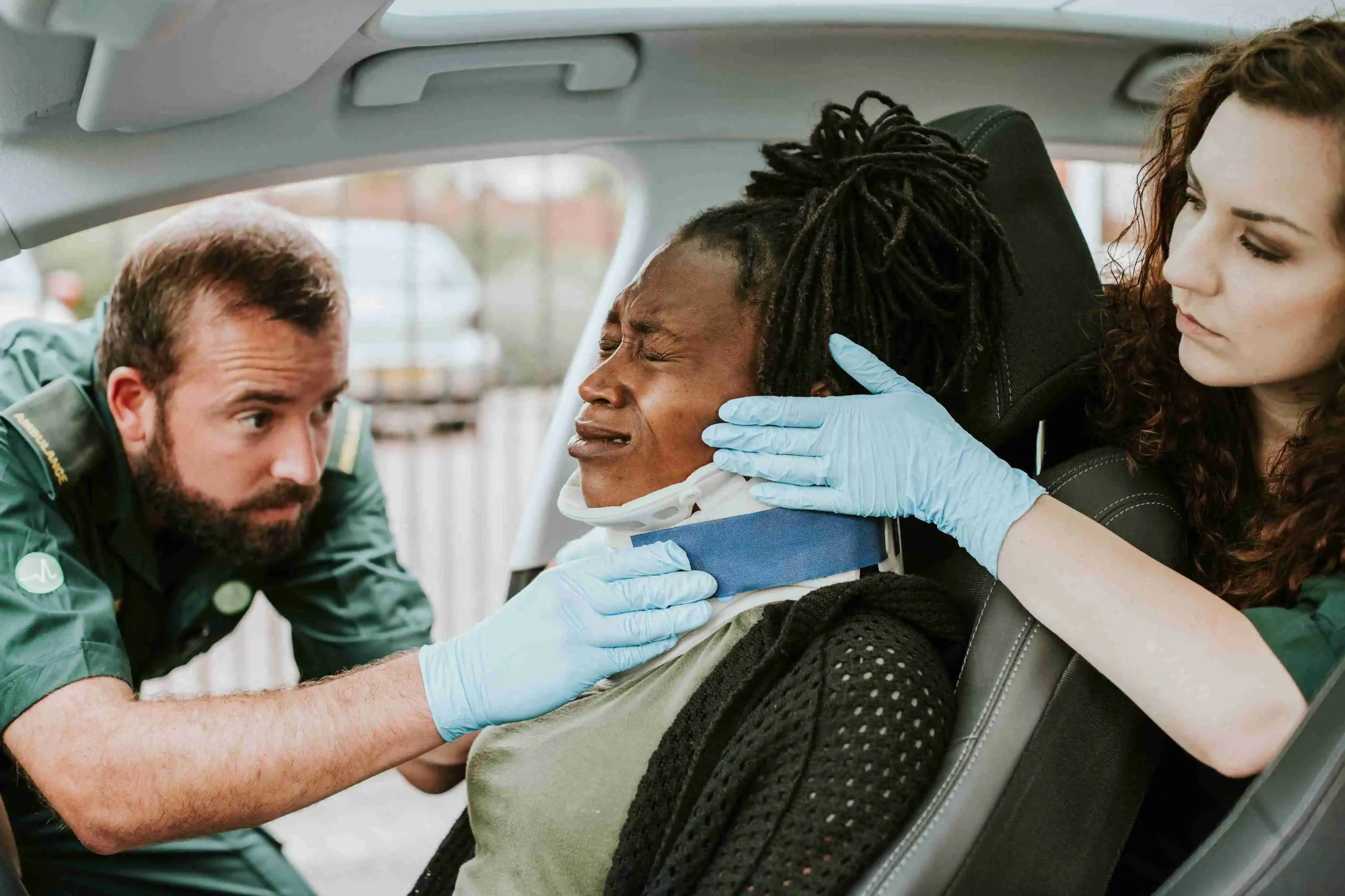
Average Settlement for Car Accident Back and Neck Injury
What is the Average Settlement for Car Accident Back and Neck Injury
Back and neck injuries are common and can often lead to chronic pain, limited mobility, and lost wages. If you are suffering from such an injury, you might be wondering, How much is the average settlement for a back injury or neck injury? While headlines love to tout million-dollar payouts, the reality is far more nuanced. Numbers can be comforting, but they don’t always paint the whole picture. Individual settlements can range from a few thousand dollars to millions of dollars, depending on the unique circumstances of your case. In this article, we will discuss factors influencing the average settlement for a car accident and back and neck injury.
Common Neck and Back Injuries
Neck and back injuries encompass a wide range. Here are some frequently encountered types:
- Whiplash—sudden forceful movement of the head can cause neck pain, stiffness, and headaches;
- Sprains and strains—overexertion or awkward movements can stretch or tear ligaments and muscles in the back or neck, leading to pain and limited mobility;
- Herniated disc—when the soft cushions between vertebrae bulge or rupture, they can press on nerves, causing pain, numbness, and weakness; and
- Fractures—falls or high-impact collisions can fracture vertebrae, leading to severe pain, instability, and potential nerve damage.
These are just a few examples. Early diagnosis and treatment are critical for optimal recovery and preventing long-term complications.
Why There’s No Simple Answer to Average Settlement Amounts
Unfortunately, there’s no one-size-fits-all answer to questions about average settlements. The average settlement for a neck injury in a car accident depends on your unique circumstances. Determining the value of your claim depends on a multitude of factors:
- The severity of your injury. The extent of your injury plays a crucial role. Minor soft tissue strains will typically result in lower settlements compared to herniated discs, spinal cord injuries, or permanent nerve damage.
- Medical bills and future medical needs. The cost of past and future medical care associated with your injury is a significant factor. Documented medical expenses, including doctor visits, physical therapy, surgeries, and medications, contribute to the settlement value.
- Lost wages and earning potential. If your neck or back injury has impacted your ability to work, the settlement will consider your lost wages and potential future earnings. These include income you’ve already lost and any possible decrease in future earning capacity due to the injury.
- Pain and suffering. The intangible cost of pain and suffering from a back or neck injury can be significant. Emotional distress, physical discomfort, and the impact on daily life all play a role in determining settlement value.
- Liability and insurance coverage. The at-fault party’s level of liability and their insurance coverage limits can influence the settlement amount. In some cases, pursuing a personal injury lawsuit against the at-fault driver may be necessary to recover total compensation.
- Impact on your daily life. If your back or neck injury limits your ability to perform daily activities, enjoy hobbies, or participate in physical activities, it strengthens your claim.
- Fault of the other driver. The degree of the other driver’s negligence can influence your settlement.
- State laws. Each state has its own laws governing car accidents and insurance coverage, which can affect your settlement.
It’s important to note that settlements are negotiated, not predetermined. By understanding the factors that influence settlements and the importance of state laws, an attorney can assist you on the path toward physical and financial recovery.
State Laws and Their Impact on Settlements
State laws can significantly impact the average settlement for car accidents with neck and back injuries. Every case is unique, and your state’s specific laws will dramatically influence the settlement process. Here is a breakdown of a few critical legal concepts.
Fault-Based vs. No-Fault Systems
States may operate under either a fault-based or no-fault car insurance system. Under a fault-based system, the driver who caused the accident is financially responsible for the injured party’s damages. Under a no-fault system, drivers may use their own insurance and receive reimbursement for medical expenses regardless of who caused the accident. No-fault systems place limitations on the circumstances where an injured party may sue an at-fault driver. Mississippi is an at-fault state.
Comparative Negligence
Mississippi’s pure comparative negligence system can significantly impact the outcome of your settlement. Under such a system, your fault in the accident will be compared to the other driver’s fault. You can still recover damages if you are found to be at fault. However, your award will be reduced by your percentage of fault. For example, if you are found to be 20% at fault for the accident and your total damages are $100,000, you could recover $80,000.
Damage Caps
Mississippi caps the maximum award for noneconomic damages at $1,000,000 for car accident cases. Noneconomic damages include things that are difficult to quantify, such as
- Pain and suffering,
- Emotional distress, and
- Loss of enjoyment of life.
Understanding the specific laws in your state is crucial. Consulting with a personal injury attorney familiar with your state’s legal landscape is vital to maximizing your potential back or neck injury settlement.
Don’t Settle for Less Than You Deserve
Contact Smith & Holder, PLLC, today for a free consultation. Our team of passionate personal injury attorneys is here in Gulfport, Mississippi, to answer questions about the average settlement for car accidents with back and neck injuries. Securing the compensation you deserve is our top priority. With a proven track record of success, our skilled attorneys will work tirelessly to build a strong case, negotiate aggressively with insurance companies, and fight for you to receive a fair settlement reflecting your injuries’ full impact.
Read More

Is Leg Pain After a Car Accident a Sign of a Serious Injury?
 After the car accident, your leg felt a little sore, but nothing you couldn’t handle. Now, though, the pain is getting harder to ignore. Maybe it’s a dull ache that won’t go away or a sharp, shooting pain that catches you off guard. Either way, you’re left wondering: is this just a bruise, or could it be something more serious?
After the car accident, your leg felt a little sore, but nothing you couldn’t handle. Now, though, the pain is getting harder to ignore. Maybe it’s a dull ache that won’t go away or a sharp, shooting pain that catches you off guard. Either way, you’re left wondering: is this just a bruise, or could it be something more serious?
At Smith & Holder, PLLC, we know how easy it is to dismiss symptoms like leg pain after a car accident, only to have them become more significant problems. In this post, we’ll break down what your leg pain could be telling you, when to take it seriously, and how Mississippi law could play a role if you’re considering a personal injury claim.
What Causes Leg Pain After a Car Accident?
Leg pain after a car accident doesn’t just come out of nowhere—there are specific causes tied to the force of the crash and how your body reacted in those split seconds.
- Blunt trauma. When your leg hits the dashboard, car door, or another hard surface during the collision, it can result in bruising, sprains, or fractures.
- Nerve compression or damage. The jarring motion of an accident can compress or pinch nerves and lead to shooting pain, numbness, or that unpleasant “pins and needles” sensation that makes walking or standing difficult.
- Soft tissue strain. Muscles, ligaments, and tendons in the leg are highly vulnerable in a crash. The sudden force can stretch or tear these tissues, leaving you with pain that may worsen without proper treatment.
- Joint stress or misalignment. The knees and ankles absorb much of the force during a collision. Even without direct impact, the unnatural twisting or pressure on these joints can lead to leg pain, inflammation, or reduced mobility.
- Blood clots (Deep Vein Thrombosis). While less common, leg trauma from an accident can increase the risk of developing a blood clot. Symptoms might start as a dull ache but can quickly escalate if left untreated.
If you’re experiencing leg pain after a car accident, it’s essential to figure out where it’s coming from to take action that protects your health.
When Should You Worry About Leg Pain After a Car Accident?
Leg pain isn’t always an emergency, but certain signs suggest you should see a doctor sooner rather than later. If the pain is severe, makes it hard to walk, or comes with swelling or discoloration, it’s time to seek medical attention. For example, leg bruising after a car accident might seem minor, but it can indicate deeper tissue damage or internal bleeding.
Here are a few symptoms that warrant a closer look:
- Pain that doesn’t improve or worsens over time;
- Difficulty walking, standing, or putting weight on the leg;
- Swelling or discoloration that spreads beyond the initial injury site;
- Numbness, tingling, or a “pins and needles” sensation in the leg; or
- Loss of mobility or range of motion in the knee, hip, or ankle.
Delayed leg pain after a car accident is another scenario to watch for. Adrenaline often masks injuries right after a crash, only for symptoms to show up hours or days later. Ignoring them can lead to complications that are harder to treat later.
Types of Car Accident Leg Injuries
Your legs take more impact in a crash than you might realize. Whether pinned against the dashboard, twisted awkwardly, or jolted by the force of the collision, car accident leg injuries can range from minor to severe.
- Sprains and strains. The force of a crash can stretch or tear soft tissues like ligaments, tendons, and muscles. You might be left with pain, swelling, and stiffness, making even simple movements uncomfortable.
- Bone fractures. Broken bones, like a fractured femur or tibia, are common in high-impact collisions. These injuries often come with sharp pain, swelling, and difficulty bearing weight on the affected leg.
- Nerve damage. The sudden jolt of an accident can compress or damage nerves in your lower back or legs. Shooting pain, tingling, and numbness are common symptoms of nerve injuries.
- Compartment syndrome. While less common, this condition occurs when intense muscle pressure builds up, cutting off blood flow. It’s a medical emergency that requires prompt treatment to prevent permanent damage.
Even a slight ache or bruise could be an early sign of something more serious. Paying attention to how your body feels after the crash can help you catch problems before they worsen. For many, leg injuries from car accidents demand immediate attention to prevent complications and promote recovery.
Tell Us About Your Leg Pain — We’ll Help You Understand What It Means
What Should You Do If You’re Experiencing Leg Pain After a Car Accident?
Lingering leg pain after a car accident is more than just an annoyance—it’s a signal your body isn’t bouncing back as it should. Start with a visit to the doctor. Pain isn’t always what it seems—something that feels small can hide a more serious issue, like a fracture or nerve damage.
Keep track of how the pain affects your daily life. Write down the tasks that feel harder, how your mobility has changed, and the treatments or advice you’ve received. This isn’t just helpful for your doctor—it provides important details if you decide to hold someone accountable for what happened.
Mississippi Laws for Personal Injury Claims After a Car Accident
Mississippi law allows you to seek compensation if someone else caused your accident. But there are a few things you should know:
- Fault and compensation. Even if you share some blame for the accident, you can still recover damages under Mississippi’s comparative fault rules.
- Deadlines matter. You likely have three years from the date of the accident to file a claim. Letting that time slip away could mean losing the chance to get help with medical bills, lost wages, or other losses caused by the crash.
These laws exist to protect people like you, but they can feel overwhelming when you’re trying to manage daily life with an injury. Knowing your rights ensures you aren’t left paying for someone else’s negligence.
Don’t Ignore Leg Pain After a Car Accident—Contact Us Today
After a car accident, leg pain can do more than slow you down—it can impact your ability to work, enjoy time with loved ones, or feel like yourself again. At Smith & Holder, PLLC, we’ve seen how these injuries affect every aspect of life, and we take that seriously.
Attorneys Chris Smith and Morgan Holder work directly with you, addressing your concerns and ensuring full accountability for your losses. We fight for your future because you deserve nothing less. Call us today for a free consultation.
Read More
Why a Headache After a Car Accident Should Never Be Ignored
Car accidents are traumatic events that can leave physical and emotional scars. While some injuries, such as cuts or fractures, are immediately apparent, others may take hours or even days to manifest. One often-overlooked symptom is a headache. Though it might seem minor, a headache after a car accident can be a warning sign of a serious underlying condition. In this blog, we’ll explore the potential causes of post-accident headaches, their implications, and the legal options available to accident victims in Mississippi.
What Are Common Causes of Post-Accident Headaches?
Headaches after a car accident can arise from various factors, some of which may signal significant medical concerns. Here are the most common causes:
- Concussions or post-concussion syndrome. A car crash concussion occurs when the brain is jolted during a collision and can lead to persistent post-concussive symptoms such as headaches, dizziness, and trouble with concentration and memory. A concussion after a car accident usually appears within the first 7 to 10 days after an injury and typically lasts longer than three months.
- Whiplash. The rapid back-and-forth motion of the neck during a crash can strain the muscles and ligaments, leading to headaches originating from the base of the skull. The pain after a car accident usually starts within days of the injury, but the symptoms are shared with other injuries, so it might not be clear what your pain is related to.
- Stress and psychological trauma. The stress of being in an accident can trigger tension headaches or migraines, even if no physical injury is detected. Sometimes referred to as an acute stress reaction, it may not be noticeable for two to 30 days after an accident.
- Post-traumatic headache (PTH). A PTH occurs following a head or neck impact, typically within a week of an injury. It causes similar symptoms, such as a concussion or whiplash, including fatigue, irritability, and anxiety.
These causes highlight the importance of taking headaches after a car accident seriously, as they could signal underlying injuries that require prompt medical attention.
What Are Signs Your Headaches After a Car Accident May Indicate a Serious Problem?
Not all headaches are created equal. Knowing when to seek medical attention can make a critical difference in your recovery. Look for these warning signs:
- Worsening pain after a car accident—if the headache intensifies over time, it could indicate internal bleeding or a brain injury;
- Accompanying symptoms—nausea, dizziness, sensitivity to light, blurred vision, and confusion are red flags;
- Delayed onset—a headache that appears days after the accident may still point to a significant issue; and
- Difficulty with concentration or memory—cognitive problems often accompany serious brain injuries.
If you notice any of these symptoms, consult a healthcare professional immediately.
What Should I Do If I Experience a Headache After a Car Accident?
Taking prompt action after noticing symptoms can protect your health and legal rights. Here’s what to do:
- Seek immediate medical attention. Don’t wait to see if the headache goes away on its own. A medical professional can evaluate you for potential conditions like a concussion, whiplash, or even internal injuries that may not show obvious symptoms at first.
- Document your symptoms. Write down details about your pain after an accident, such as when your headaches occur, how long they last, and what seems to trigger or worsen them. This information will help medical professionals provide the best care and could be evidence if your injuries lead to legal action.
- Report the accident. File a police report and inform your insurance company about the incident, ensuring all details are accurately documented.
- Consult a car accident attorney. An experienced attorney can guide you through the legal process, from gathering evidence to negotiating with insurance companies.
By taking these steps, you can safeguard your well-being and determine if you can seek compensation for your accident.
Types of Damages in Mississippi Personal Injury Lawsuits
When pursuing a personal injury claim in Mississippi, understanding the types of damages available is vital to ensuring appropriate compensation. Below are the key categories:
- Economic damages—measurable financial losses such as medical expenses, lost wages, and property damage, often forming the backbone of a claim;
- Noneconomic damages—address subjective losses, including pain and suffering, emotional distress, and loss of enjoyment of life; and
- Punitive damages—levied in severe cases to punish particularly egregious behavior and deter future misconduct.
By understanding these distinctions, plaintiffs and attorneys can better tailor their strategies for seeking full compensation.
Negligence and Liability in Mississippi Law
The legal framework governing negligence in Mississippi balances the rights of injured parties with fairness to defendants. Key aspects of these principles are:
- Comparative negligence. This rule allows plaintiffs to recover damages even if they are partially at fault, with awards reduced by their degree of responsibility.
- Joint and several liability. Defendants are only liable for the portion of damages reflecting their fault unless they acted together in committing a tort.
- Privity not required. Individuals can bring claims for negligence, strict liability, or breach of warranty without a direct contractual relationship.
Mississippi’s negligence laws reflect a commitment to ensuring fair outcomes while holding negligent parties accountable.
Statute of Limitations
Time limits are critical in personal injury lawsuits, as missing a filing deadline can completely bar recovery. Mississippi’s statute of limitations outlines specific timelines based on the type of claim:
- Personal injury claims. Plaintiffs generally have three years from the date of the injury to file a lawsuit.
- Medical malpractice claims. These must be filed within two years of the date the malpractice occurred or was recently discovered.
- Wrongful death actions. Wrongful death lawsuits must be filed within three years of the decedent’s death or two years if based on medical malpractice.
Understanding these statutes is important for effectively navigating personal injury claims in Mississippi. Legal professionals meticulously evaluate the specifics of each case to support compliance with state laws and to advocate effectively for their client’s rights.
Contact Smith & Holder, PLLC Today
The Smith & Holder, PLLC team understands they are taking on a great responsibility when agreeing to help you with your case. Since founding their firm, they have won the Expertise.com award for Best Car Accident Lawyers in Gulfport for 2021, and Chris is listed as a Rising Star on SuperLawyers.com. Don’t let a headache—or any other injury—go unnoticed after a car accident. Contact Smith & Holder, PLLC, today to schedule your free consultation and begin your path to recovery.
Resources
- Mayo Clinic, link
- Verywell Health, link
- Miss. Code § 11-1-65, link
- Miss. Code § 11-7-15, link
- Miss. Code § 85-5-7, link
- Miss. Code § 11-7-20, link
- Miss. Code § 15-1-49, link
- Miss. Code § 15-1-36, link
- Miss. Code § 11-7-13, link
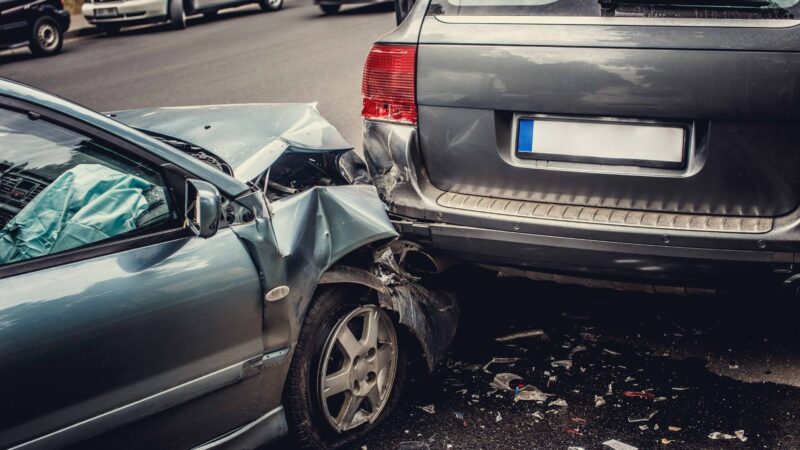
What Factors Affect the Value of Your Car Accident Compensation Claim?
While there are hundreds of factors impacting the value of a car accident compensation claim, the greatest determining influence is often the severity of your injuries. If your injuries are more severe, you will most likely have higher medical expenses, lost wages, and pain and suffering. Greater expenses and losses often lead to a higher damages award.
Financial Losses
Your payout will likely be higher when the car accident causes you significant financial hardship. Financial losses can come in many different forms.
Medical Expenses
The cost of recovering from an injury often includes:
- Surgery,
- Emergency transportation,
- X-rays,
- Lab testing,
- Medications, and
- Physical therapy.
Severe injuries can cause years of recovery and continuous medical appointments. An accident claim can include projected costs of future and ongoing treatment.
Lost Wages
If your injuries prevent you from attending work or cause you to miss work to attend medical appointments, you may be able to recover those lost wages and raise the value of your car crash settlement. If you have a permanently reduced ability to work, your claim should also take that into account by calculating the difference between your pre-accident earnings and your projected future income.
Out-of-Pocket Costs
An injury can often make it impossible for you to complete routine tasks such as caring for your children or mowing your lawn. You can add the expense of hiring extra help to your car accident claim. Examples of service costs include:
- Childcare,
- Home maintenance,
- Transportation,
- Grocery delivery, and
- Pet care.
Keep track of expenses you would not have incurred but for the collision. Your accident claim can include the costs of “replacing” your normal domestic activities while you recover from an injury.
Property Damage
The value of your car crash settlement can be affected by the severity of damage to your vehicle. Your award may include the cost to repair or replace the vehicle.
Once a car has been in an accident, the worth of that car goes down. This is true even after repairs. In Mississippi, this loss is called diminished value. Diminished value is the difference between the market value of the car right before the accident and the market value of your car after the repairs. You may be able to include your car’s loss in value as a factor in your accident claim.
Pain and Suffering
Car accidents take a toll on your physical and psychological well-being as well as financial status. The value of your claim may change if you suffer certain physical or emotional symptoms such as:
- Loss of sleep,
- Anxiety,
- Depression,
- Emotional distress,
- Fear,
- Pain, or
- Weight loss.
It can be difficult to assign a monetary value to physical pain or reduced mental health. There are various methods attorneys use to calculate the value of pain and suffering in a car accident compensation claim. The results often depend on the degree to which your pain and suffering impacted your life after the accident.
Pre-Existing Conditions
If you had pre-existing medical conditions that were worsened by the accident, your car accident compensation might still include the costs associated with aggravated injuries. It is essential to document how the accident impacted your condition. This often involves medical records, expert testimony, or evaluations that distinctly differentiate between your previous health status and the injuries caused by the collision. Your attorney can help illustrate how the accident worsened these conditions, which may significantly affect your accident compensation claim. Mississippi courts will closely review the extent of aggravation, working to ensure the claim accurately reflects the new harm caused by the accident.
Fault
A major factor affecting car accident compensation is the actions of the drivers leading up to the collision. If multiple drivers contributed to the cause of the crash in some way, the court will assign each driver a percentage of the fault. This is called comparative negligence. If the court determines the accident to be 10% your fault and 90% the fault of the other driver, the court may reduce your payout by 10%. As a pure comparative negligence state, Mississippi allows a driver to recover some amount of damages as long as they are determined to be less than 100% at fault.
Maximize Your Compensation – Contact Us Today!
Contact Form
Drugs and Alcohol
If the other driver was under the influence of drugs or alcohol, you may be able to ask the court for punitive damages. Punitive damages are meant to deter and punish illegal or immoral behavior. For the court to award punitive damages, you need to show the impairment of the driver directly caused the accident. The court will award punitive damages only if it believes the accident would not have happened if not for the gross negligence or reckless disregard of the offending driver.
There are limits to the amount of punitive damages a court will award. The court will take circumstantial facts into consideration when determining that amount. Situational factors include:
- If the driver is a habitual offender,
- If the driver intended to cause harm to others,
- If the driver attempted to evade responsibility, and
- The driver’s financial condition and net worth.
Recovering punitive damages is not always an option in car accident compensation claims. Determining who is at fault and to what extent is a complicated process. Having a knowledgeable lawyer on your side could reduce your percentage of shared liability and leave you with a more favorable award.
Evidence of the Accident
The strength of your evidence plays a crucial role in determining your car accident compensation. Photographs, witness statements, police reports, and medical records help establish fault and quantify damages. To build a strong case, you should gather evidence immediately after the accident, including documenting road conditions, weather, and any visible injuries or property damage. Preserving evidence like damaged clothing, broken personal items, or receipts for accident-related expenses can further bolster your claim. Reliable evidence makes it easier for your attorney to negotiate a favorable settlement or present a compelling case in court.
Insurance Coverage
Insurance policies can have a significant impact on the value of a car accident claim. In Mississippi, liability insurance is required for all drivers and plays a central role in determining how much compensation you might receive. However, there are important factors to consider:
- Policy limits. The insurance policy of the at-fault driver may cover damages only up to a specific amount. If your damages exceed these limits, you might need to consider other options for compensation.
- Uninsured/underinsured motorist coverage. Your policy may cover the difference if the driver at fault does not have sufficient insurance.
- Claim denials. Insurance companies may contest liability, refuse coverage, or understate your claim’s value. Partnering with an experienced attorney can assist you in challenging these strategies and maximizing your compensation.
Understanding how insurance policies affect your claim is crucial for maximizing your car accident settlement.
What Are the Timelines for Filing an Accident Compensation Claim?
In Mississippi, the statute of limitations for filing car accident compensation claims is three years from the date of the accident. Failing to file your claim within this time frame may result in losing your right to recover damages. However, certain exceptions could apply:
- Injuries discovered later—the filing timeline may be extended if injuries or damages become apparent after the accident; or
- Claims involving minors—if a minor was involved, the statute of limitations might be delayed until the minor reaches age 21.
Ensuring your claim is filed on time is critical to securing favorable car accident compensation.
Get the Compensation You Deserve – Contact Smith & Holder, PLLC Today!
When it comes to knowing what might affect the value of your car accident claim, who you choose to represent you matters. Having an experienced and passionate legal team could be the determining factor between receiving an insufficient payout and receiving the compensation you need. At Smith & Holder, PLLC, we use our smart and creative legal strategies to help our clients get every penny they deserve. Contact us now to learn more about how our aggressive negotiating techniques have resulted in significant financial compensation awards for our clients.
Read More
Shoulder Pain After Car Accident: When to Seek Legal Advice
Shoulder pain after a car accident can disrupt your daily life and leave you wondering about your legal options. Car accidents often result in injuries that may not manifest immediately, making it crucial to recognize the seriousness of shoulder injuries and understand your rights. At Smith & Holder, PLLC, we aim to help individuals in Mississippi navigate the complexities of personal injury claims and secure the compensation they deserve.
Understanding Shoulder Pain After a Car Accident
Shoulder pain is a common symptom following car accidents. Whether it arises immediately or as delayed shoulder pain after a car accident, the causes can range from minor strains to severe injuries. These injuries include:
- Rotator cuff tears—a tear in the group of muscles and tendons stabilizing the shoulder,
- Fractures—collarbone or shoulder blade fractures caused by impact,
- Dislocations—the shoulder joint being forced out of place, and
- Soft tissue injuries—sprains and strains in the ligaments and muscles surrounding the shoulder.
Each of these injuries requires prompt medical attention, as untreated shoulder pain can lead to long-term mobility issues and chronic discomfort.
Impact of Shoulder Injuries on Your Life
Shoulder injuries can profoundly affect your daily life, leaving you grappling with physical limitations and emotional challenges. Simple tasks, like lifting objects, reaching overhead, or carrying groceries, can become painful or impossible. These limitations can lead to frustration and helplessness, particularly when they interfere with your ability to work, care for loved ones, or engage in hobbies you once enjoyed.
For instance, a rotator cuff tear might necessitate surgery followed by months of rehabilitation, during which you may struggle with reduced independence. Chronic pain and restricted movement often contribute to emotional distress, exacerbated by mounting medical bills and lost income.
The ripple effects of a shoulder injury are not just physical; they can disrupt your emotional well-being and financial stability. Recognizing the profound, long-term implications of shoulder pain from a car accident underscores the importance of seeking both medical and legal assistance to safeguard your future.
When to Seek Legal Advice
If you are experiencing shoulder pain after a car accident, consulting an attorney can help you understand your rights and options. Here are scenarios where legal advice is especially critical.
Delayed Symptoms
Delayed shoulder pain after a car accident can complicate your case. Mississippi’s statute of limitations generally allows three years from the date of the accident to file a personal injury claim, but proving the connection between delayed symptoms and the accident can be challenging without proper documentation and legal assistance.
Serious Injuries
Severe shoulder injuries often require expensive treatments, including surgery and physical therapy. An attorney can help you pursue compensation for these costs and any future medical needs.
Disputed Liability
If the at-fault party’s insurance company disputes their responsibility or the severity of your injury, legal representation ensures your case is presented effectively.
Compensation for Shoulder Pain After a Car Accident
When pursuing shoulder pain after a car accident compensation, several types of damages make up the value of your claim:
- Medical expenses—costs for emergency care, surgery, physical therapy, and medications,
- Lost wages—compensation for time missed from work and reduced earning capacity, and
- Pain and suffering—noneconomic damages for physical and emotional distress.
An experienced attorney will evaluate your case and work to secure a settlement or verdict that reflects the full scope of your losses.
Steps to Take After a Car Accident
Taking the right steps after a car accident is crucial for your health and legal case. Immediately following the accident, your priority should be your safety and well-being. Seek medical attention promptly, even if your shoulder pain seems minor, as some injuries may not be immediately apparent. Documentation of your injuries is vital for your claim.
Report the accident to law enforcement and your insurance company to ensure that an official record is created. If you are able to do so, gathering evidence at the scene, such as photos of the accident site, your vehicle, and visible injuries, can strengthen your case. Finally, consult an attorney to discuss your legal options and next steps. At Smith & Holder, PLLC, we can guide you through this process with care and expertise.
Why Choose Smith & Holder, PLLC?
At Smith & Holder, PLLC, we understand the physical, emotional, and financial toll shoulder injuries can take. Our legal team is committed to:
- Thorough case evaluation. We ensure all aspects of your injury and losses are considered in your claim.
- Skilled negotiation. We negotiate with insurance companies on your behalf to secure fair compensation.
- Aggressive representation. Our team is prepared to take your case to court if necessary to achieve the best outcome.
We pride ourselves on providing compassionate, results-driven representation tailored to each client’s unique situation.
Common Questions About Shoulder Pain After a Car Accident
What If I Have Delayed Shoulder Pain After a Car Accident?
Your shoulder pain may not present itself immediately, either because of adrenaline or because other injuries mask it. Keep detailed records of your medical visits and any changes in your condition. An attorney can help link your symptoms to the accident.
Can I File a Claim If I Was Partially at Fault?
Mississippi follows a pure comparative negligence rule, allowing you to recover damages even if you were partially responsible. However, your compensation will be reduced by the percentage of your fault.
How Much Is a Shoulder Injury from a Car Accident Worth?
The value of your claim depends on factors like the severity of your injury, your medical expenses, and the impact on your life. Consulting an attorney is the best way to get an accurate assessment.
Take Action Today
Shoulder pain after a car accident is not something you should ignore. If you’re dealing with the aftermath of an injury, contact Smith & Holder, PLLC, for a free consultation. Our experienced attorneys will guide you through the process, ensuring your rights are protected and your recovery is prioritized.
Call us today or visit our website to learn how we can help you reclaim your life after a car accident.
Read More
6 Things You Need to Do After a Car Accident in Mississippi
Where Do Most Car Accidents Happen?
Picture yourself cruising along the scenic roads of Mississippi, relishing the freedom of driving. Unfortunately, even the most tranquil journeys sometimes veer into unexpected territory. Understanding the areas where you may face higher risks of a car accident in Mississippi helps you remain alert and prepared. As you gain more knowledge of accident-prone locations, you’re arming yourself with insights that keep you safe.
Common Locations for Car Accident in Mississippi
So, where do most car accidents happen? In Mississippi, some locations are notorious for their higher accident rates. Here are some hotspots:
- Intersections. Busy intersections are often the site of collisions due to the convergence of multiple vehicles. Failing to yield, running red lights, and misjudgments often lead to dangerous situations.
- Highways. Major highways, such as I-55 and I-20, see heavy traffic and high speeds, increasing the likelihood of serious accidents. Merging, lane changes, and distracted driving can amplify risks on these thoroughfares.
- Rural roads. While they may seem less dangerous, rural roads often lack proper signage and lighting, leading to sudden hazards, such as wildlife crossings or unexpected turns.
- Parking lots. Although parking lots are typically low-speed environments, they can be deceptive. Drivers backing out of spaces or navigating tight corners quickly collide with others, especially if distracted.
- School zones. Areas near schools are critical, as children often cross streets unpredictably. Increased vigilance is essential here, particularly during drop-off and pick-up times.
Awareness of these locations helps improve your driving habits and reduce the chances of accidents.
What Do You Do After A Car Accident in Mississippi?
When you are injured in a car or trucking accident, the steps you take immediately after the accident will have a significant impact on your ability to file a claim and what amounts you may be able to recover. Mistakes can be critical – especially when insurance companies are often looking for ways to deny your claim or minimize the value of your settlement. With an attorney at your side, you can avoid these costly mistakes and protect your right to compensation.
Step 1: Call 911
After an accident, call 911. This will alert emergency medical response teams to your location so that those injured in the accident can receive immediate medical treatment. Notifying the police of the accident will also enable you to document and obtain important accident information, which will be included in the accident report prepared by the investigation officer. This accident report is also a critical piece of evidence when establishing the liability and negligence of the “at-fault” driver.
Step 2: Document General Accident Information
Immediately after an accident, if you are able, document and gather general accident information, such as:
- Other driver’s license number
- Vehicle license plate numbers
- Other driver’s automobile insurance information
- Other driver’s address and contact information
- Time, date, and location of the accident
- Witnesses to the accident
This information will be important when filing a claim with the at-fault party’s insurance company.
Step 3: Document the Accident Scene and Your Injuries
If possible, take photos of the damage to your car, the other car, and the surrounding area. Taking pictures of the intersection, the traffic lights, traffic control devices (such as stop signs and yield signs), skid marks, and other details will be helpful when establishing who was at fault. You should also document any details you remember, such as:
- How the accident happened
- Where the accident happened
- What happened just before the accident
- What happened immediately after the accident
- What did the other driver say or do before and after the accident
You should also take photos of your injuries. Photos depicting the nature of your injuries will help improve the value of your claim. As the old saying goes, a picture is worth a thousand words.
Injured in a Mississippi Car Accident? Let’s Review Your Options
Step 4: Seek Medical Attention
Immediately after the accident, you should seek medical attention – even if you think you haven’t suffered an injury. The adrenaline from the accident may mask serious injuries, and sometimes, certain injuries may be asymptomatic (meaning they do not reveal themselves until later). You should visit a medical professional or an emergency room immediately. If you are injured, a diagnosis of your injury is necessary when trying to collect the money you deserve. If your doctor prescribes medicine, you should have those prescriptions filled promptly. You should follow your doctor’s advice regarding any follow-up treatment or referrals, including physical therapy. Failing to follow your doctor’s advice and attend appointments may signal to the insurance company that your injuries aren’t as bad as you claim they are.
Some of the most common injuries that occur after an auto accident include:
- Spinal cord injuries
- Back injuries
- Whiplash
- Neck injuries
- Fractures
- Burns
- Disfigurement
- Internal organ damage
- PTSD
- Depression and anxiety
When visiting your doctor, you should disclose any pre-existing injuries or conditions. Your doctor will be able to establish exactly how the accident affected your existing injury or condition. Without your doctor’s medical diagnosis and opinions, the insurance company may claim that your injury was simply a pre-existing condition and not one that was aggravated or caused by the accident.
Step 5: Notify Your Insurance Company
Many injured drivers fail to notify their own insurance company because they believe they don’t have to or need to. Even if you are not to blame for the accident, you should contact your insurance company as soon as you are able. While the “at-fault” driver’s insurance company should pay for damages, you should still contact your own insurance company and report any property damage or injuries. Your own insurance company may be able to pay for the repairs to your car quickly, and then seek reimbursement from the at-fault driver’s insurance company. Also, if the other driver makes a claim against you, your insurance company will be able to defend you against these claims. If the other driver is at fault but doesn’t carry enough insurance or any insurance at all, then you will need to tap into your own uninsured/underinsured (UM/UIM) insurance to pay for medical bills and damage. This can’t be done without the proper notification.
But you should be careful what you tell your insurance company or the at-fault driver’s insurance company when you speak with them. It is best not to discuss fault, and you should decline to give them a recorded statement until you have spoken with an experienced injury attorney. Also, you should never sign anything without first speaking to a lawyer. Your lawyer can protect your rights during the claim and legal process and prevent insurance companies from taking advantage of you during this difficult time.
Step 6: Call a Personal Injury Attorney in Mississippi
As soon as you are able, contact a personal injury lawyer in Mississippi. Important evidence can be lost or destroyed if you don’t act quickly. Your attorney will be able to investigate all aspects of your case, seek to preserve and gather any evidence, not in your possession, and file the appropriate claims against the at-fault parties. Through detailed preparation, planning, and organization, your attorney can obtain maximum compensation for you after an accident. Your attorney can help you obtain money to pay for:
- Medical expenses
- Rehabilitation expenses
- Long-term care costs
- Future medical expenses
- Lost wages
- Loss of future earnings
- Loss of enjoyment of life
- Physical Pain and suffering
- Mental and emotional pain and suffering
How Can A Lawyer Help?
If an unfortunate event occurs and you need assistance, knowing how an attorney supports you after a car accident in Mississippi is helpful. Here are several ways they provide guidance:
- Legal advice. An attorney provides crucial insights into your rights and responsibilities, helping you navigate the complexities of accident laws.
- Insurance negotiation. An attorney handles communication with insurance companies on your behalf, ensuring you receive fair compensation for damages and injuries.
- Accident investigation. Attorneys assist in gathering evidence, including police reports and witness statements, to build a strong case for you.
- Litigation support. If necessary, an attorney represents you in court, advocating for your interests and protecting your rights.
- Claim filing. They help you understand the process of filing a claim, ensure you meet all deadlines, and correctly complete all necessary paperwork.
Don’t Navigate the Aftermath Alone — Get Experienced Legal Help
Being able to answer the question, Where do most crashes happen? and understanding how an attorney assists you, can help you take valuable steps toward protecting yourself on the road. Whether driving through bustling intersections or quiet rural roads, this knowledge empowers you to navigate confidently.
Call Smith & Holder, PLLC today, or contact us online so that we can answer your questions. Discuss your case with our legal team of highly experienced attorneys. We will provide you with the excellent service that you deserve.
Read More
